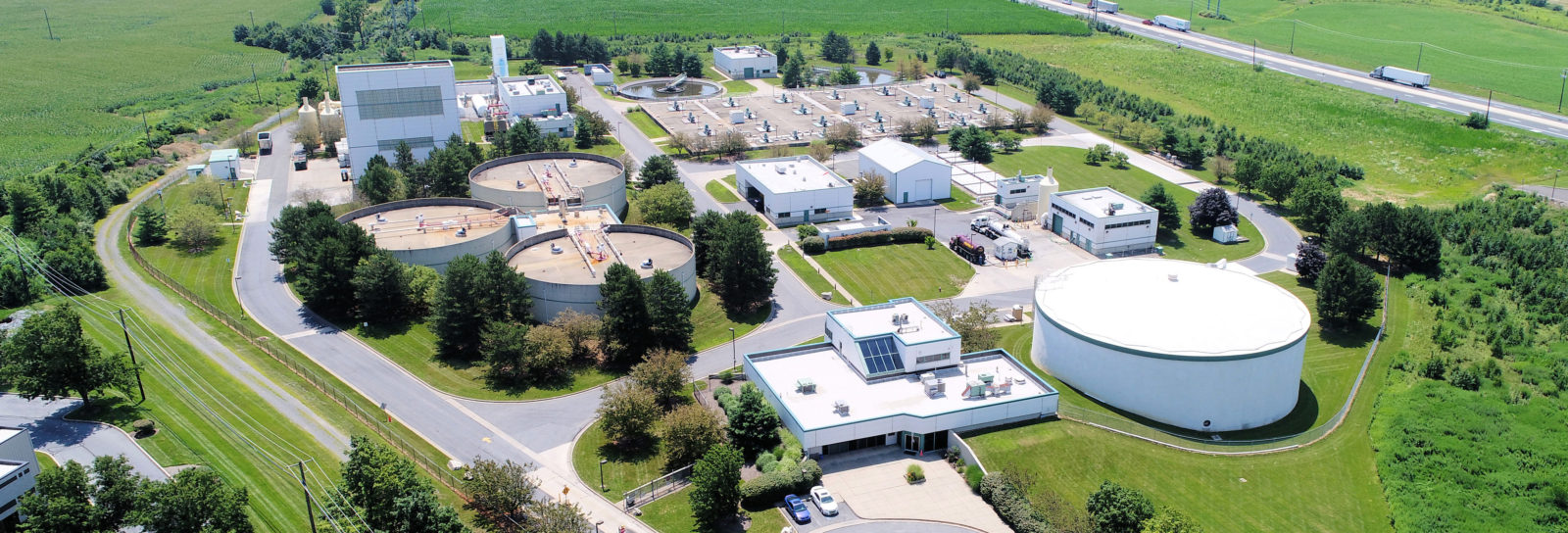Businesses Create Wastewater, Too — How Does LCA Treat That?
 January 17, 2020
January 17, 2020Above, LCA’s Pretreatment Plant in Fogelsville.
Last year, we kicked off our Behind The Scenes at LCA series with a number of blog posts detailing the wastewater treatment process. Now we’re kicking off 2020 by adding to that series with a post about another important step in that process: the EPA’s Industrial Pretreatment Program.
As Lehigh County Authority Manager of Industrial Waste Andrew Moore explains, “pretreatment” is the treatment of wastewater specifically from commercial and industrial facilities to remove harmful pollutants before the wastewater is discharged to a sewer treatment facility such as Kline’s Island.
Essentially, the EPA program is aimed at preventing the introduction of pollutants that a wastewater treatment plant is not equipped to handle — for instance, volatile organic compounds, heavy metals, or hazardous waste. It also increases opportunities to recycle and reclaim municipal and industrial wastewaters and sludges.
Wastewater treatment plants are responsible for coordinating and administering the program.
Although there are many businesses in our region, the EPA requires permits only if a business will be discharging types of waste like those mentioned above. LCA works with 42 industries in the Lehigh Valley that have a special permit to discharge industrial waste.
Overall, industrial users contribute about 5 million gallons to the 32 million gallons of wastewater treated daily at Kline’s Island.
Testing is Key
Each year, LCA takes about 500 water samples, conducts inspections, reviews reports, and performs field testing to ensure our industrial users are meeting or exceeding EPA requirements. In November 2019, our staff was awarded for their dedication to meeting the requirements of the EPA-mandated program.
Here’s how the program works: Depending on the waste, pretreatment may be required onsite at the industry — before the waste is discharged into the sanitary sewer system. This may be as simple as pH adjustment, or as complex as removing metals. Once the waste is pretreated, it enters the sewer system and the treatment plant and is treated the same as normal household waste.
LCA also has a Pretreatment Plant in Fogelsville that deals with high-strength industrial wastewater containing a lot of organic materials — for instance, wastewater from food and drink processing, or commercial agriculture. This plant effectively treats waste to household levels, so that it can be further treated at the Kline’s Island plant. Some of the waste is trucked to Fogelsville, and some arrives via a special sanitary sewer system.
Keep in mind that industrial waste should not be confused with hazardous waste — industry byproducts like cleaning fluids, paints and solvents, or pesticides. Hazardous waste is isolated by the industry and collected by independent environmental companies. Pollutants that cannot be treated or will cause issues at the wastewater treatment plant are prohibited from being discharged (which is why it’s also important to never flush hazardous waste down the drain — take it to a hazardous waste collection event instead!).